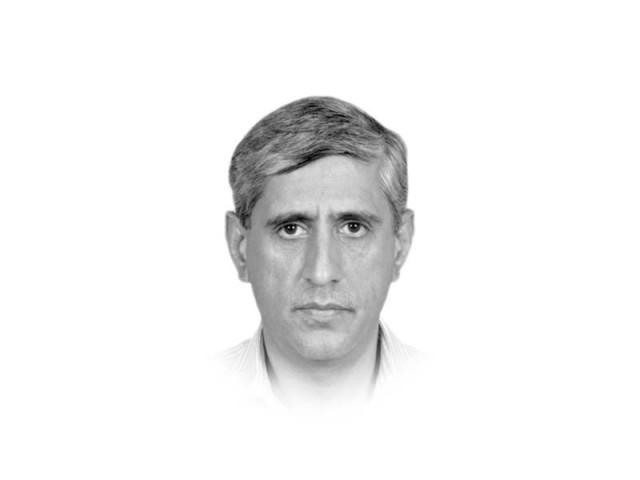Our Afghan imbroglio
Afghanistan’s defiance and Pakistan’s indulgence have shaped a cycle of mistrust, militancy, and smuggling

Afghanistan has developed some misgivings due to our shared history and the two foreign interventions with different results. Distorted interpretation of historical facts, revanchism born of atavism, nationalism-driven irredentism and a tribal iconoclasm have invested Afghan sociology and politics with a heightened sense of self importance that has regularly manifested itself in the shape of baseless border claims and disregard of international law vis a vis country like Pakistan. Pakistan - compared to other neighbours of Afghanistan like Iran, Central Asian states and China - has been most indulgent of Afghan demands for soft borders and trade concessions.
All other neighbours have traditionally dealt with Afghanistan strictly in accordance with international law without allowing any space for illegal trade, human trafficking and crime. It is Pakistan that has traditionally indulged Afghans by allowing a laissez faire trade and human movement relying on colonial era British concessions like "Easement Rights" that permitted the 17 divided tribes across the Pak-Afghan border certain leeway in cross border movement and trade. The Afghan Transit Trade was a big concession to a landlocked Afghanistan that unfortunately was abused unconscionably by Afghans in collusion with certain lobbies inside Pakistan that benefited by that arrangement.
The combination of ATTI and the smuggling across Pak-Afghan border had created decades long eco system of crime and patronage with political and bureaucratic linkages. The demand generated in Karachi pulled the smuggled goods towards Pakistani markets through this illegal arrangement enriching the smugglers and their influential patrons.
The taste of militancy to the tribes made the deradicalisation and reintegration of the militants in the traditional civilian spaces difficult due to two reasons. One, those spaces had closed due to a change of demographics and demolition of the traditional power structures in the tribal districts of Khyber-Pakhtunkhwa province. Two, the demand of militancy had not decreased due to another foreign invasion of Afghanistan in October 2001. Pakistan's support of the US-led international coalition had further estranged it from the Afghans, who viewed Pakistan with distrust. This feeling of distrust straddled both Pashtun and non-Pashtun factions, including the US allies like Hamid Karzai and Ashraf Ghani.
Afghan hubris rooted in tribal ethos and a misplaced sense of self-importance have led Afghanistan to disregard the dangers of militancy to their own state. Their ideological preference for the non-state actors of every hue and stripe like Al-Qaeda, ISIS, ETIM, IMUS and the TTP have blinded them to the perils of international isolation and the internal implosion. They have learnt the wrong lessons from history, forgetting conveniently that the Afghans have always been subdued by foreign invaders like Persians, Greeks, Scythians, Huns, Kushans, Turks, Sikhs and the British. They have also forgotten that without Pakistan's economic and military support they could never have fought the Soviets.
They have also shown little regard for the humanitarian support and the hosting of four million refugees in Pakistan for nearly four decades. Instead of being grateful the present Afghan regime has let loose the TTP terror under its benign gaze. Mullah Hibatullah Akhundzada, in whose person resides the spiritual and the temporal power, has the last say on all issues and does not allow the contrarian voices in the Kabul-based pragmatists in his cabinet. The result is the rejection of pluralism, women rights, political inclusivity and the control of terror outfits operating from Afghan soil. The Afghan scene is further complicated by the meddling of external powers like India, who wish to keep Pakistan under attack through their terror proxies like TTP. Countries like Russia have also jumped in the Afghan fray by recognising Afghan Taliban's government, most probably, to keep the American influence at bay.
China, a rising global power surprisingly has not played a decisive part in influencing the Afghan Taliban, despite its geopolitical and economic interests in Afghanistan. Despite being part of trilateral, quadrilateral and the multilateral Moscow format consultative mechanisms on Afghanistan, China has not played an influential role in its backyard i.e. South Asia, most probably due to its preoccupation with Asia Pacific and East Asia. Arab countries like Saudi Arabia, the UAE and Qatar despite their willingness to mediate in the Pak-Afghan conflict have limited influence on an ideologically-driven entity like Taliban government.
The above analysis portends a protracted Pak-Afghan conflict aided and abetted by India and other major powers that wish to settle score with rival global powers. Since neither geopolitics nor external alliances will help resolve the Afghan issue, Pakistan has to undertake internal reforms and defensive measures to tackle the Afghan predatory behaviour and economic parasitism. Pakistan has to finish the open border laissez faire illegal trade and cross border movement culture by strong border management practices and their consistent application. The demand for smuggled goods generated in Pakistani markets will have to be curtailed through crime control measures, even if it hits the interests of powerful and politically influential lobbies inside Pakistan.
Pakistan - like China, Iran and Central Asian states - will have to show a zero tolerance for breach of its borders and Afghan-inspired crime and terrorism. National Action Plan will have to be implemented religiously including legal reforms to enhance the conviction rates of terrorists. Extremism, in all its forms, will have to be eliminated through a zero-tolerance policy and cleansing of the academic spaces of the pernicious effect of extremist ideology. The religious political parties will have to be reined in to ensure that the religion is not misused for political purposes. And finally, a whole of society response is necessary to fight the externally abetted terrorism remembering well that without resolve and consistency all counterterrorism attempts will come a cropper.















COMMENTS (1)
Comments are moderated and generally will be posted if they are on-topic and not abusive.
For more information, please see our Comments FAQ